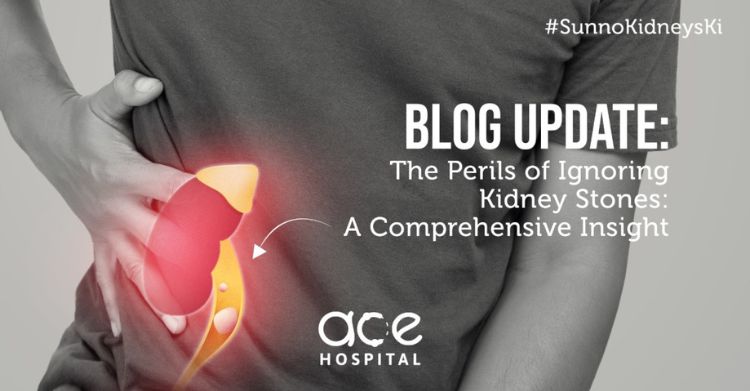Kidney stones are a common health issue that affects millions worldwide. Despite their prevalence, many individuals often underestimate the potential complications that can arise from taking kidney stones lightly. This oversight can lead to severe health problems, underscoring the importance of addressing kidney stones with the seriousness they deserve.
Understanding Kidney Stones
Kidney stones are hard deposits made of minerals and salts that form inside the kidneys. They can vary in size, and while some are small enough to be passed out of the body during urination without causing much pain, others can grow to a size that cannot be passed easily, leading to intense discomfort and potential complications.
The Journey of a Kidney Stone
When a kidney stone begins its journey from the kidney towards the bladder through the ureter, it can cause a condition known as renal colic. This is characterized by sharp, severe pain in the back and side of the body, lower abdomen, or groin. Ignoring this pain and not seeking treatment can lead to several complications:
1. Persistent Pain and Discomfort
Ignoring kidney stones can lead to ongoing discomfort and, in some cases, severe pain. This can significantly impact an individual’s quality of life, making daily activities difficult.
2. Urinary Tract Infections (UTIs)
Kidney stones can obstruct the flow of urine, which can lead to infections in the urinary system. Symptoms of UTIs include a burning sensation during urination, frequent urination, and cloudy or foul-smelling urine. If left untreated, these infections can escalate into more serious kidney infections.
3. Kidney Damage
Large stones that remain untreated can cause a backup of urine in the kidneys, leading to hydronephrosis. This condition can cause the kidneys to swell and may lead to permanent kidney damage over time.
4. Sepsis
In severe cases, where kidney stones lead to infection, if the infection enters the bloodstream, it can result in sepsis. Sepsis is a life-threatening condition that requires immediate medical attention.
5. Surgical Intervention
Ignoring kidney stones might eventually necessitate surgical intervention. Procedures like lithotripsy (breaking down stones with sound waves) or more invasive surgeries may become necessary to remove the stones.
Prevention and Management
The first step in preventing the complications associated with kidney stones is recognizing the importance of early detection and management. Here are some strategies:
– Hydration
Drinking plenty of water is crucial in preventing kidney stones. Hydration helps to dilute the substances in urine that lead to stones.
– Dietary Changes
Reducing intake of salt and animal proteins can decrease the risk of certain types of kidney stones. Including foods rich in calcium and avoiding high oxalate foods can also help.
– Regular Health Check-ups
Regular visits to a healthcare provider can help detect kidney stones early. Imaging tests like ultrasounds or CT scans are used to diagnose stones.
– Medication
In some cases, doctors may prescribe medications to prevent certain types of stones from forming.
Ace Hospital’s Role
Ace Hospital, with its specialized focus on Urology and Nephrology, plays a pivotal role in the management and treatment of kidney stones. Our experienced specialists are equipped with advanced technology and methodologies to provide the best care possible. Through campaigns like #SunnooKidneysKi, we aim to raise awareness about the seriousness of kidney stones and the importance of proactive healthcare.
Conclusion
Taking kidney stones lightly can lead to severe complications that affect not only kidney health but overall well-being. By understanding the risks associated with ignoring kidney stones and adopting preventive measures, individuals can safeguard their health. Ace Hospital remains committed to educating and treating patients, ensuring that kidney stones and their potential complications are addressed with the seriousness they require. Remember, when it comes to kidney stones, early action is the key to prevention and health preservation.

